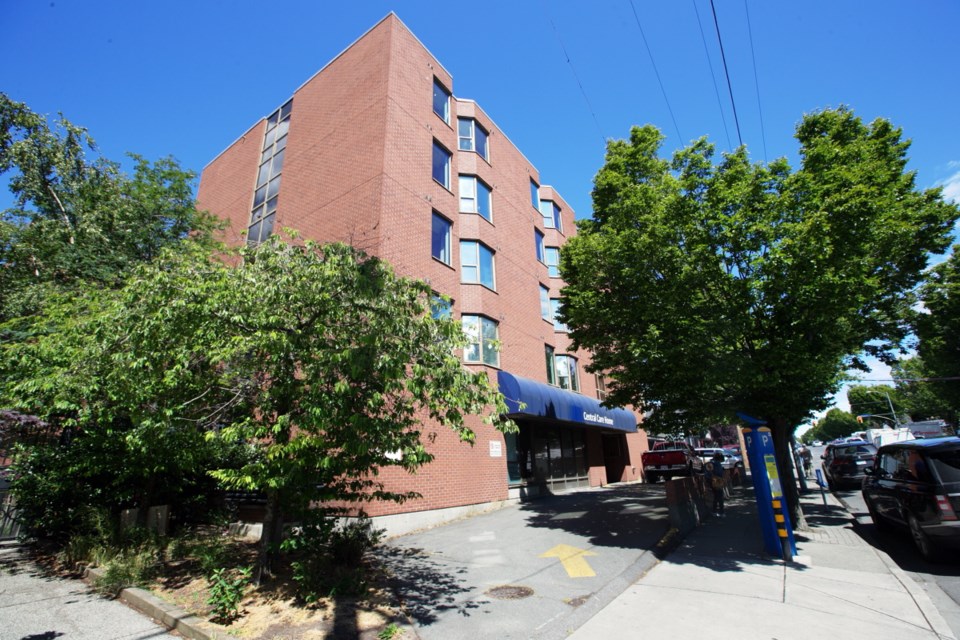Former tent city residents faced off against their landlord in B.C. Supreme Court on Friday, fighting to uphold their right to have overnight guests.
An advocate for the tenants said the decision could have implications for residents of low-income supported housing units across the province, as the court considers whether the building is a health facility or a housing facility covered by the Residential Tenancy Act.
In August, the Residential Tenancy Branch ruled that residents of 844 Johnson St., where many tent city campers are now housed, can’t be blocked from having friends and family stay overnight.
Tenants had complained that the guest policy — which prohibited overnight visitors and visitors under 19 and forced guests to show identification — violated their rights under the Residential Tenancy Act.
The tenancy arbitrator ruled that the Johnson Street building was created as a response to a housing crisis, not a health crisis, and therefore is a residential property, not a home-based health facility.
Portland Hotel Society, the non-profit agency that runs the supportive housing facility, appealed that decision.
A Supreme Court justice heard arguments Friday from both sides at the Vancouver Law Courts.
The society has argued that the 147-unit building should be exempt from the Residential Tenancy Act because it is a “housing-based health facility.”
The building has a full-time nurse, mental-health staff, social workers and a safe injection site for residents struggling with mental-health and addiction issues. Tenants have to sign a “home support consent” form, which states support staff can access rooms for regular cleaning, safety checks and to look for fire hazards.
Douglas King, executive director of Together Against Poverty Society, said it’s great that supportive housing facilities have integrated harm-reduction services to help people with addictions. But if social housing buildings are able to exempt themselves from the Residential Tenancy Act, King said, residents stand to lose key housing protections.
“If a tenant doesn’t have access to the Residential Tenancy Act, especially vulnerable and marginalized tenants, they won’t have anywhere to register complaints against their landlord, and that would be a profound difference for people in social housing,” King said.
That extends beyond guest policies, he said, and could result in arbitrary evictions and a loss of privacy rights.
Portland Hotel Society has said that identifying guests and barring overnight stays is necessary for protecting residents’ safety. In its arguments to the Residential Tenancy Branch, the agency included a letter from a Victoria police inspector who said non-residents have assaulted, intimidated and extorted residents, and forced some out of their suites.
However, a group of residents, who call themselves Super InTent City, said they signed tenancy agreements with the understanding they would have rights under the act. The residents argue the guest policy discriminates against low-income tenants and restricts access to friends and family.
TAPS takes issue with the blanket policy that restricts guests, King said. “Guest policies need to be done on a case-by-case basis as a result of evidence,” he said.
A lawyer for the Portland Hotel Society could not be reached for comment on Friday.
The Residential Tenancy Branch previously ruled that a similar Portland Hotel Society-run supportive housing facility on the Lower Mainland was exempt from the act. Supreme Court Justice Neena Sharma, who has also ruled on the homeless camp on Vancouver’s Main Street, has reserved her decision for a future date.



